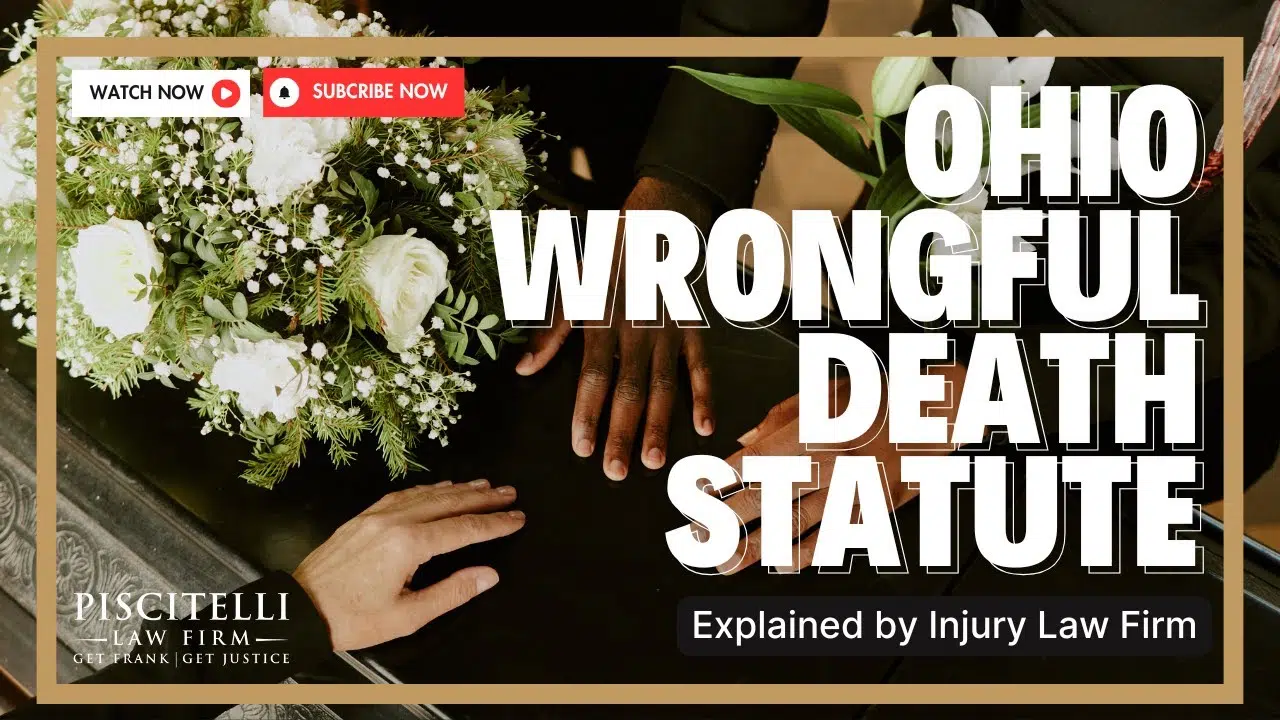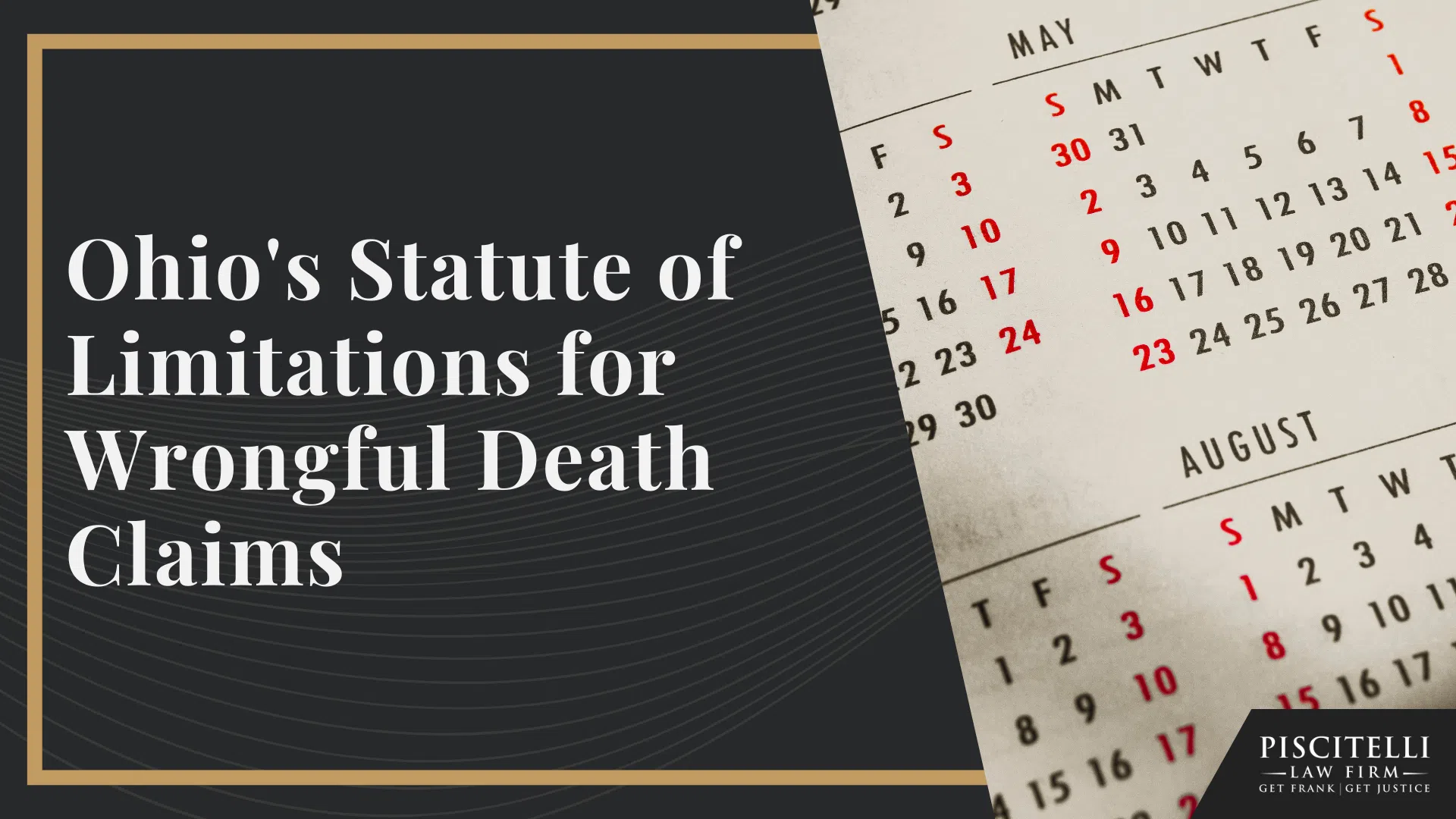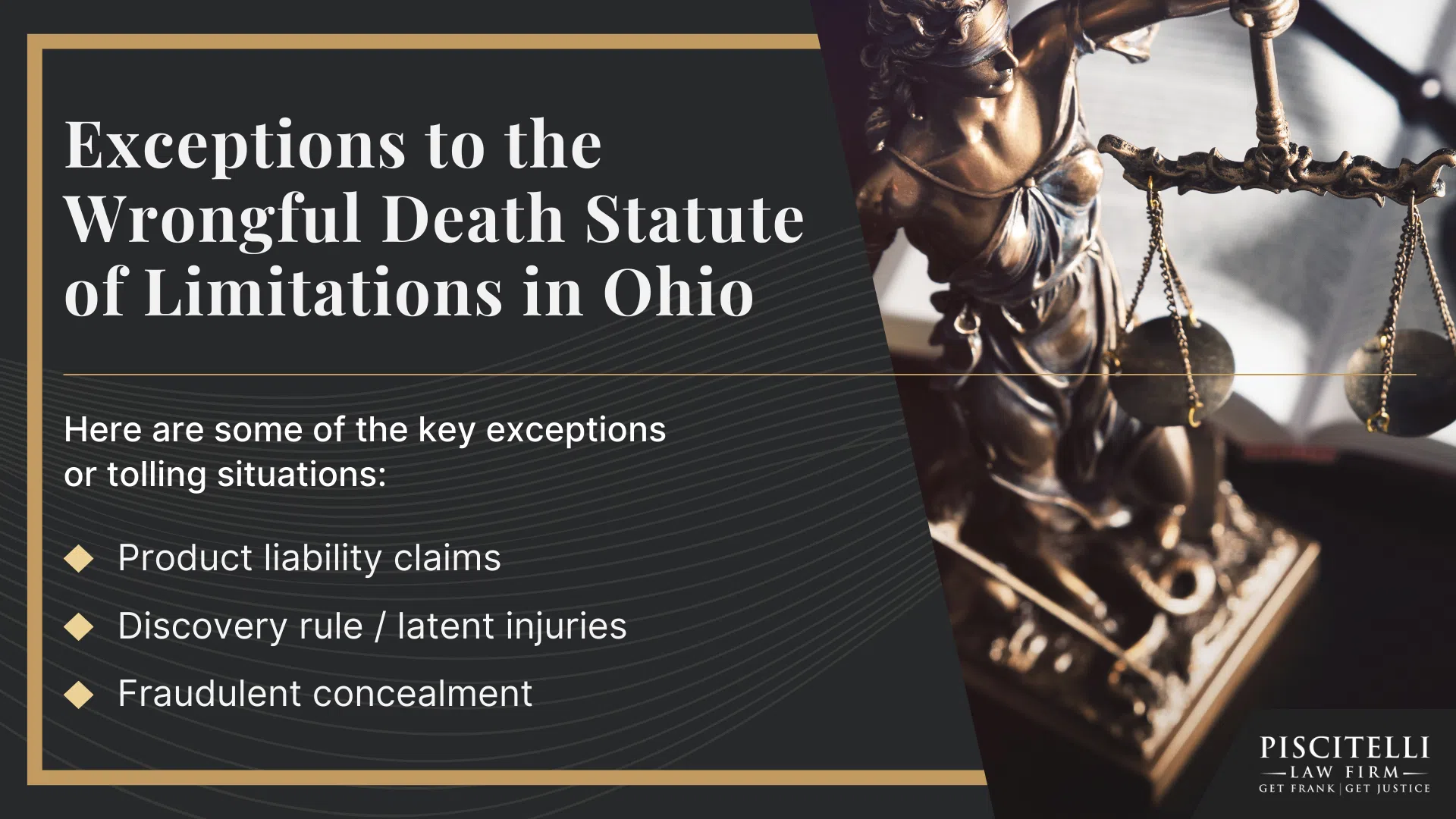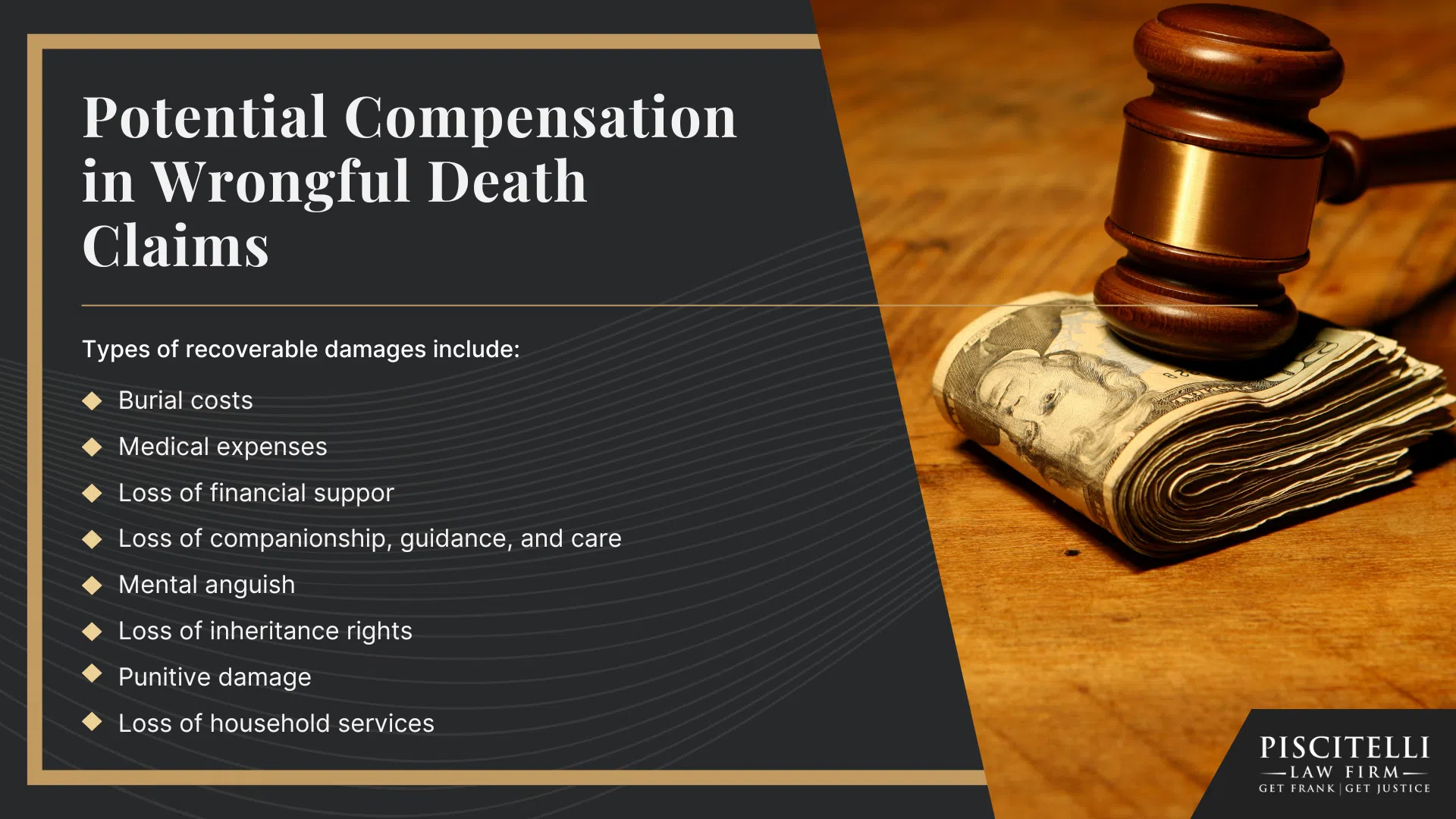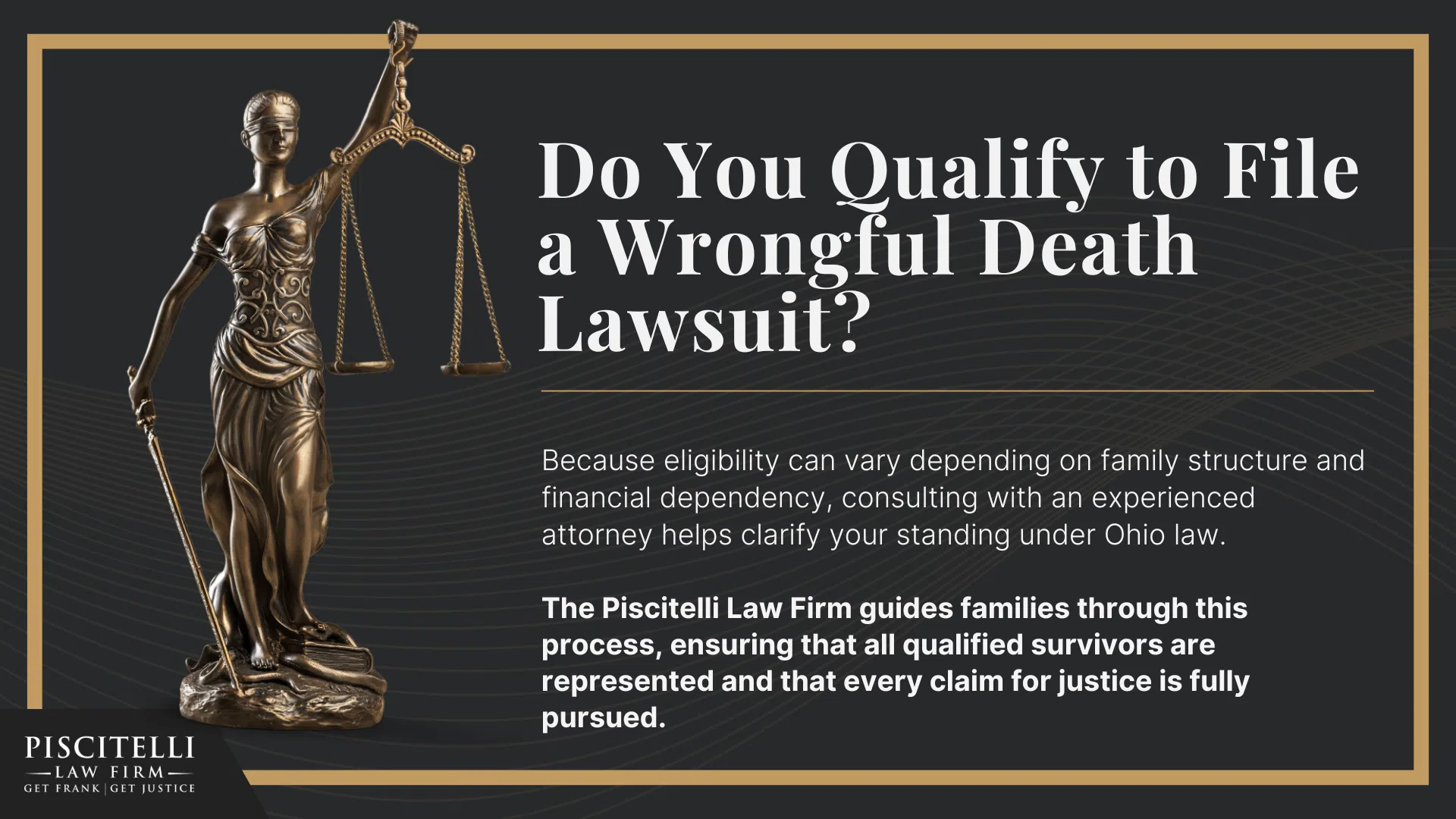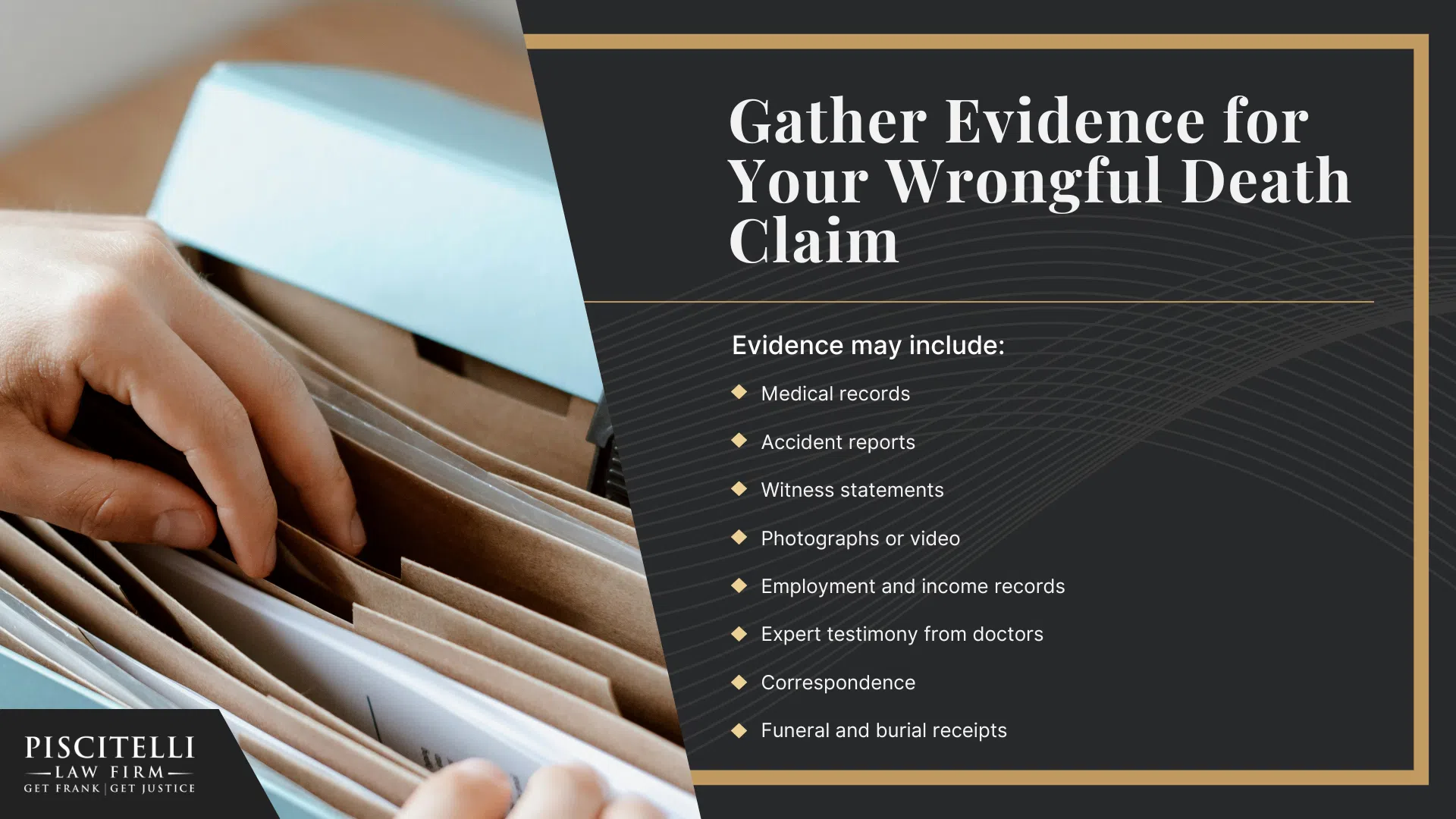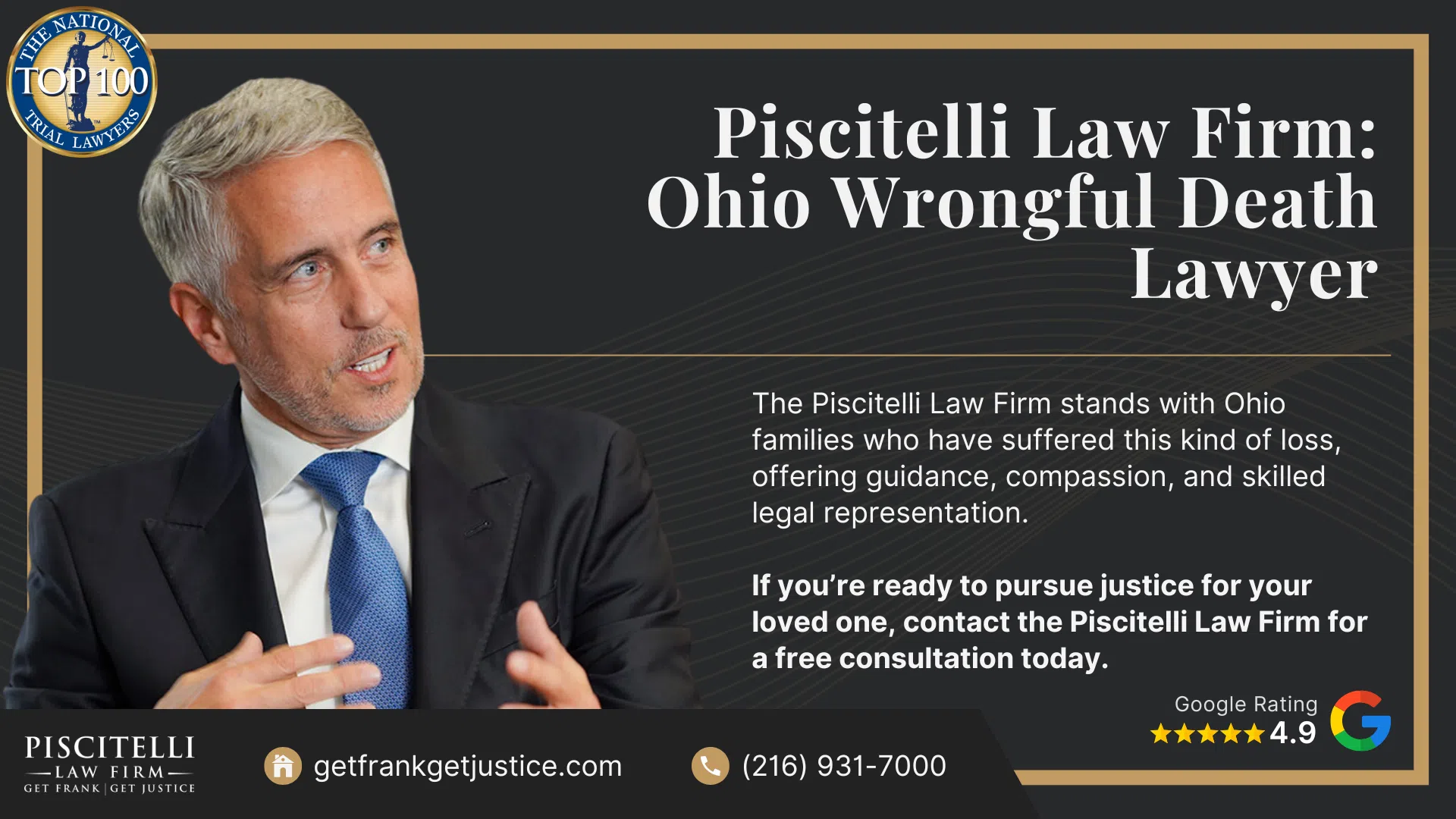If you’re considering a wrongful death action under the Ohio Revised Code §2125, it’s critical to understand who may bring the claim and under what conditions.
Ohio law holds that only the personal representative of the decedent’s estate can officially file the lawsuit, but the claim is pursued for the benefit of eligible family members who have suffered losses due to the decedent’s death.
The surviving spouse, children, and parents are presumed by statute to have suffered damages when a loved one dies because of a wrongful act, neglect, or default.
Other family members may also benefit if they can show they depended on the decedent or were otherwise financially harmed.
The law recognizes that a wrongful death case isn’t just about filing a claim, it’s about addressing the loss suffered by children, a surviving spouse, other dependents, and other family members.
Because the decedent’s death caused both emotional and financial harm, those eligible are seeking more than answers.
They are seeking compensation and justice.
Working with an experienced attorney can help determine whether you have standing and guide you through the process of seeking compensation for your loved one’s death.
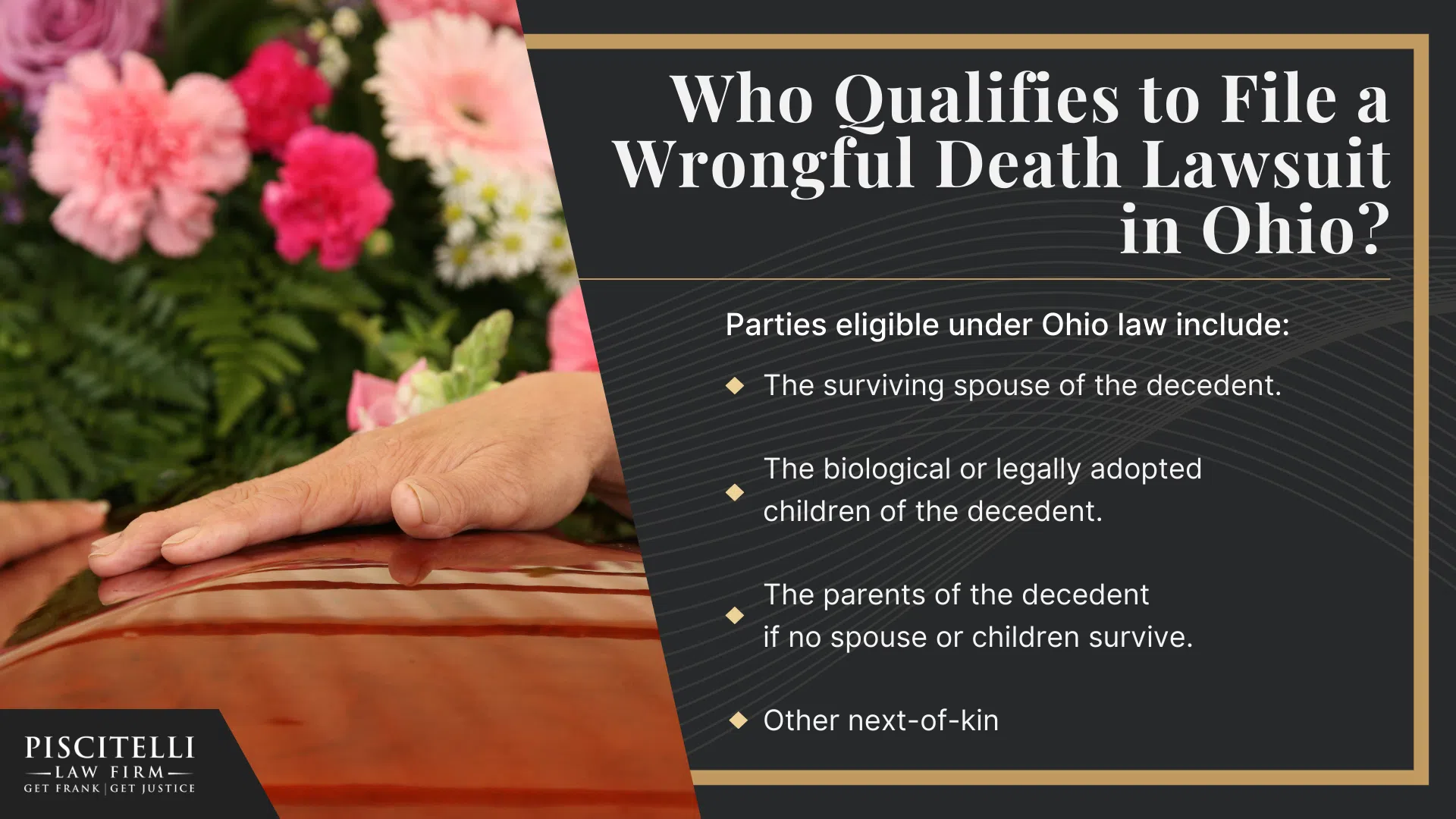
Parties eligible under Ohio law include:
- The surviving spouse of the decedent.
- The biological or legally adopted children of the decedent.
- The parents of the decedent if no spouse or children survive.
- Other next-of-kin (other brothers, sisters, grandparents) who can prove they suffered losses due to the decedent’s death.
Eligibility to benefit from a wrongful death claim is far from automatic.
Each claimant must establish their relationship to the decedent and demonstrate how they suffered losses.
Because the wrongful death statute places strict limits on both who can file and when the claim must be filed, acting quickly and with proper legal counsel is essential.
What is Considered Wrongful Death in Ohio?
A wrongful death in Ohio occurs when a person dies and the death is caused by another’s wrongful act, neglect, or default, meaning that if the person had instead suffered a personal injury, they could have sued to recover compensation, Ohio law treats it as a wrongful death action.
The governing statute is found at Ohio Revised Code §2125.02, which allows a surviving individual to bring a claim through a personal representative for the benefit of certain family members.
A wrongful death claim can proceed even if no criminal charges are filed, because it is a civil remedy for the decedent’s death, rather than a criminal prosecution.
In the case of medical malpractice claims, Ohio treats a death caused by medical negligence as eligible for a wrongful death action under the general statute, but additional rules like the medical-malpractice statute of repose may apply.
Specifically, the Ohio Supreme Court has held that the four-year statute of repose for medical claims applies to wrongful death claims based on medical care.
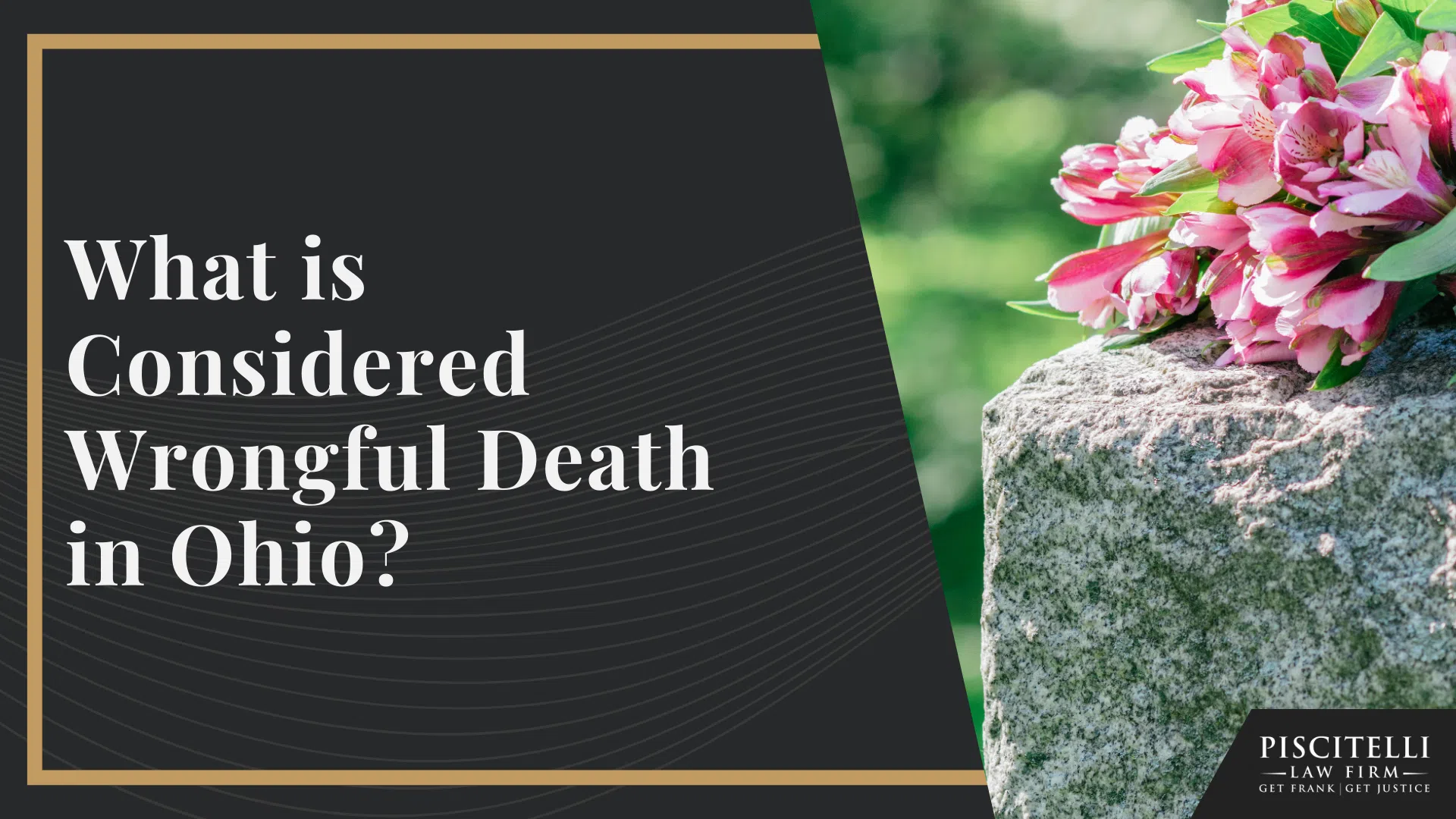
When a death occurs as the result of another’s conduct, the surviving spouse, children, or other dependents may pursue damages for their losses, such as lost support, companionship, and funeral costs.
A wrongful death suit allows families to seek justice and recover compensation on behalf of the loved one who died, holding the negligent party legally accountable for the harm caused.
Common Examples of Wrongful Death Cases
Wrongful death cases can arise from any situation where a person or entity violated a legal duty of care and caused another person’s death.
These tragedies often occur suddenly, leaving families with emotional and financial devastation.
Ohio law allows survivors to bring claims across a wide range of incidents, each governed by an applicable statute that defines negligence or misconduct.
From fatal car accidents to unsafe consumer goods, wrongful death can result from ordinary negligence or gross disregard for human safety.
In every scenario, the goal is to hold the responsible party accountable and secure justice for the life that was lost.
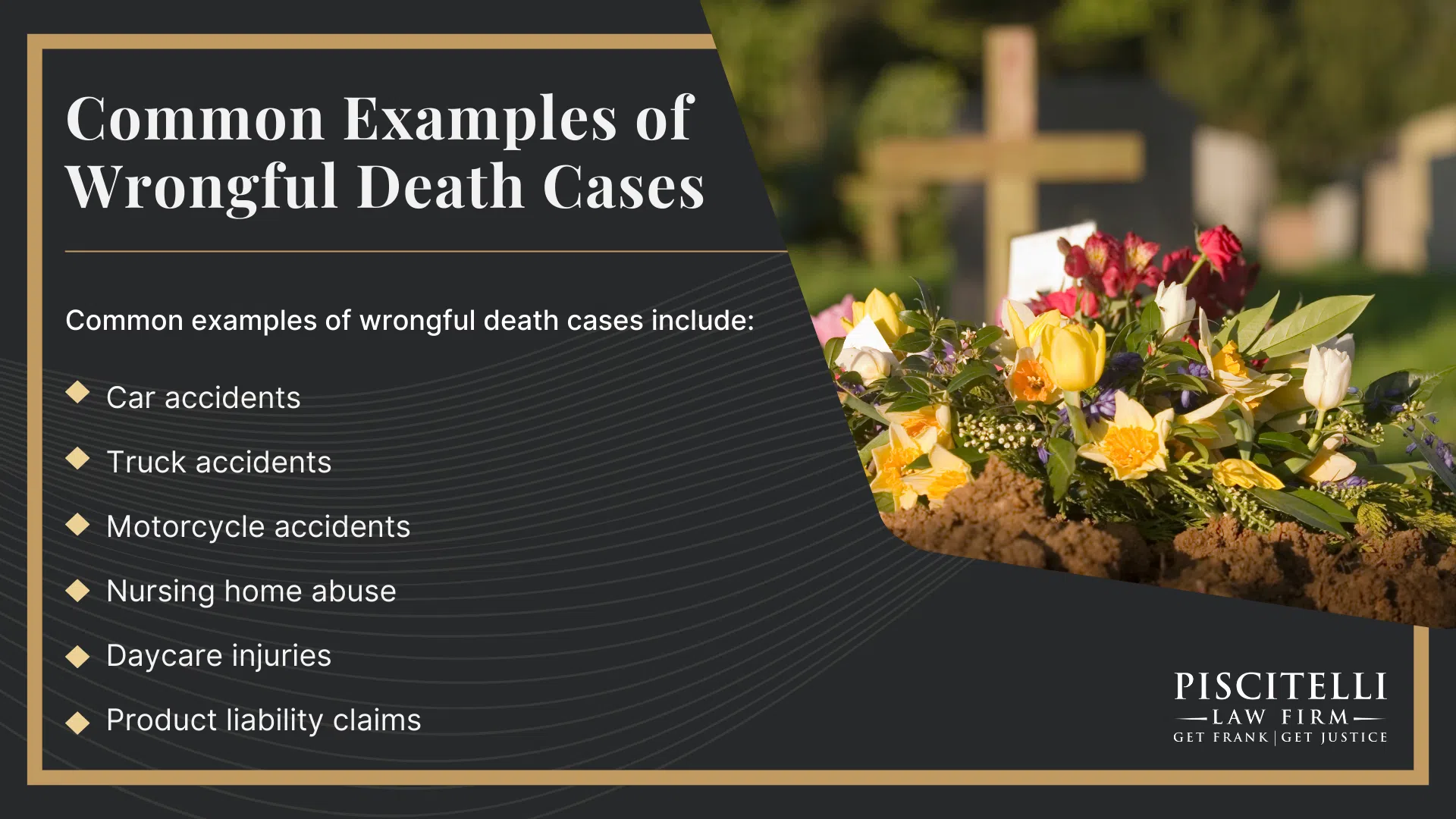
Common examples of wrongful death cases include:
- Car accidents: Fatal crashes caused by reckless driving, speeding, or intoxication.
- Truck accidents: Collisions involving commercial trucks or negligent trucking companies that fail to follow federal safety standards.
- Motorcycle accidents: Deaths resulting from driver negligence or unsafe roadway conditions that endanger motorcyclists.
- Nursing home abuse: Fatal neglect or mistreatment of elderly residents by caregivers who fail to meet their professional obligations.
- Daycare injuries: Preventable child deaths due to lack of supervision or failure to maintain safe environments.
- Product liability claims: Cases involving a defective product, such as faulty auto parts, unsafe medical devices, or hazardous household items that cause fatal injuries.
Each of these examples represents a preventable loss caused by negligence, carelessness, or misconduct.
Families who lose loved ones in such cases have the right to pursue compensation under Ohio’s wrongful death laws.

